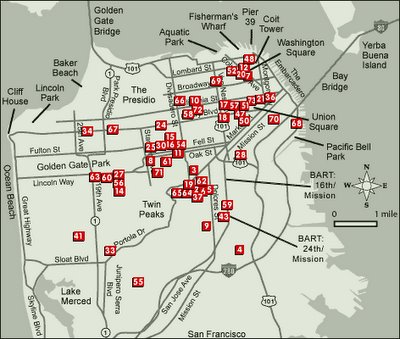Wednesday, February 22, 2006
My laptop is smoking
 While major cities around the globe scramble to offer Wi-Fi service, a small university in northern Ontario is taking a different approach.
While major cities around the globe scramble to offer Wi-Fi service, a small university in northern Ontario is taking a different approach.Lakehead University, located in Thunder Bay Ontario (home of the Ontario Student Assistance Program), is pulling the plug on Wi-Fi for health reasons.
There are currently more than 1,100 WiFi hotspots operated independently across the country. Fredericton, New Brunswick has a Wi-Fi zone that encompasses nearly half the city from the airport to downtown. Several other Canadian cities including Calgary and Vancouver are investigating the possibility of no more wires, yet Lakehead has put up a stop sign. Why?
Lakehead President Fred Gilbert won’t allow it until he’s satisfied EMF (electric and magnetic fields) exposure doesn’t pose a health risk, particularly to young people.
Gilbert, who was interviewed last week on the CBC about the university’s policy as stated in a town hall meeting last fall, told ITBusiness.ca he based his decision on scientific literature that indicates the potential for “some fairly significant” health consequences.
“These are particularly relevant in younger people (who have) fast-growing tissues, and most of our student body are late teenagers and still growing, so it’s just a matter of taking precautions and providing an environment that doesn’t have a potential risk associated risk."
President Gilbert cited studies done by scientists for the California Public Utilities Commission, whose findings boil down to the fact that while there is no proven link between EMFs exposure and diseases such as leukemia and brain tumours, the possible risk warrants further investigation.
 Gilbert may want to do further research into the WiFi situation. California is, after all where Silicon Valley is located. There are large sections of San Francisco (with a plan to take the city wireless) which are now WiFi and thousands of spaces inside the state including civic libraries. Stanford University is one of the most technology advanced institutions in the United States and has a healthy dose of WiFi.
Gilbert may want to do further research into the WiFi situation. California is, after all where Silicon Valley is located. There are large sections of San Francisco (with a plan to take the city wireless) which are now WiFi and thousands of spaces inside the state including civic libraries. Stanford University is one of the most technology advanced institutions in the United States and has a healthy dose of WiFi.In fact, there are 186 communities in the US with plans for complete WiFi coverage including Chicago and Houston. London, England is set to make the financial district WiFi. Seattle - America's most wired city. The list could go on and on.
President Gilbert added he believes there are many environmental impacts that are not manifest for 30 to 40 years after exposure:
“Second-hand tobacco exposure is a case in point,” he said. “We’re just finding out now what some of those impacts are. Asbestos is another example.”
Gilbert concluded that there are plenty of computers around campus where students can access the Internet 24 hours a day, so it’s not like they’re cut off. As they scramble to use these Vic 20's maybe a few students can pass the abacus and graph paper around. Maybe the problem could be tracked down to internet addiction.
Who will be the first to protest on September 25 - One Unwired Day?
Comments:
<< Home
I love how University Administrators are always trying to look out for University students in the most useless ways. No, we couldn't try to keep the bookstore open more or expand the quiet space in the library, instead, we've decided to take the most paternal approach possible- no wireless! Sorry Kids- there are plenty of computers in the far ends of the school which are open useless hours, you can use those.
Post a Comment
<< Home
